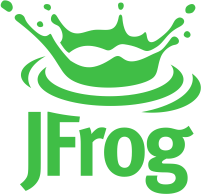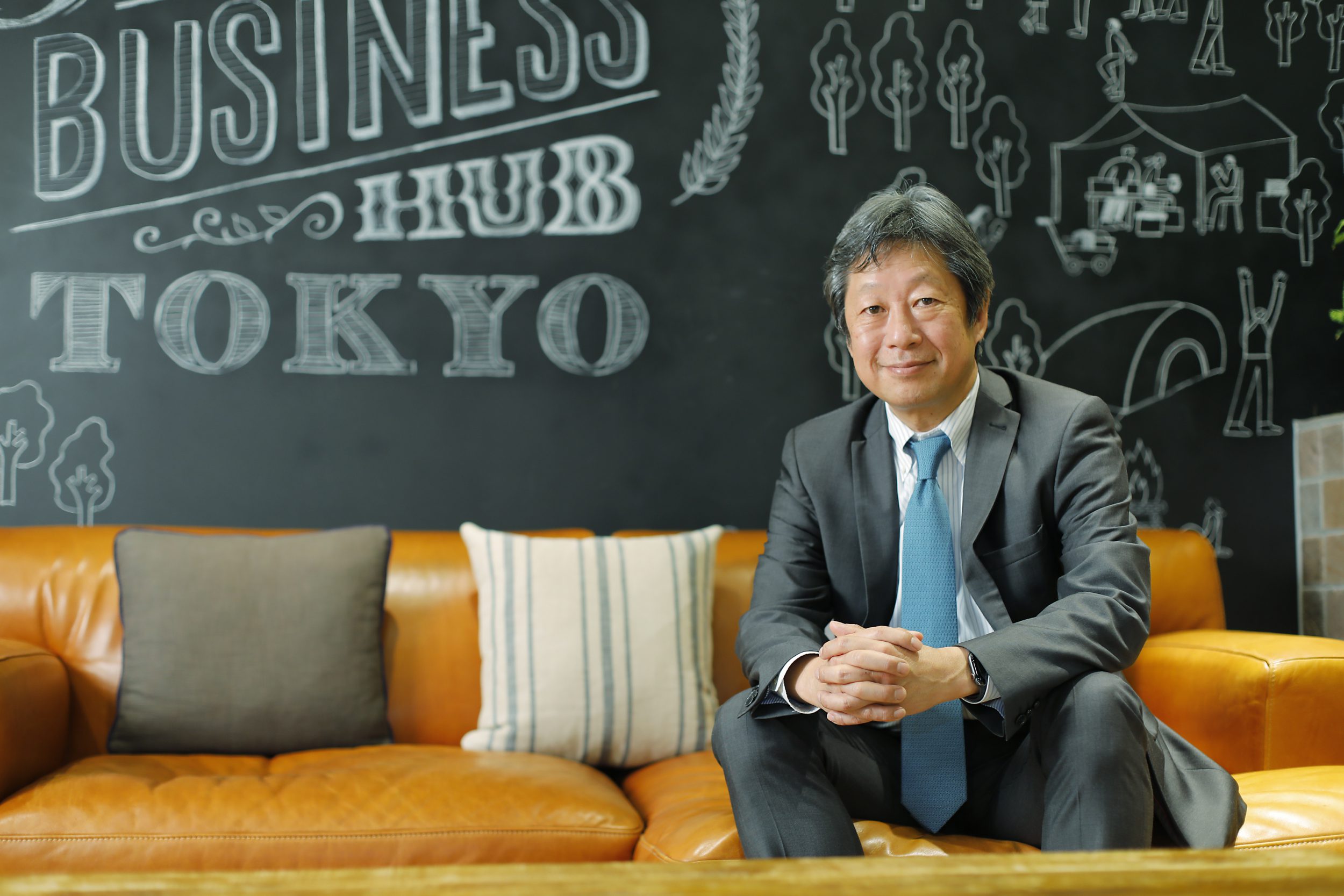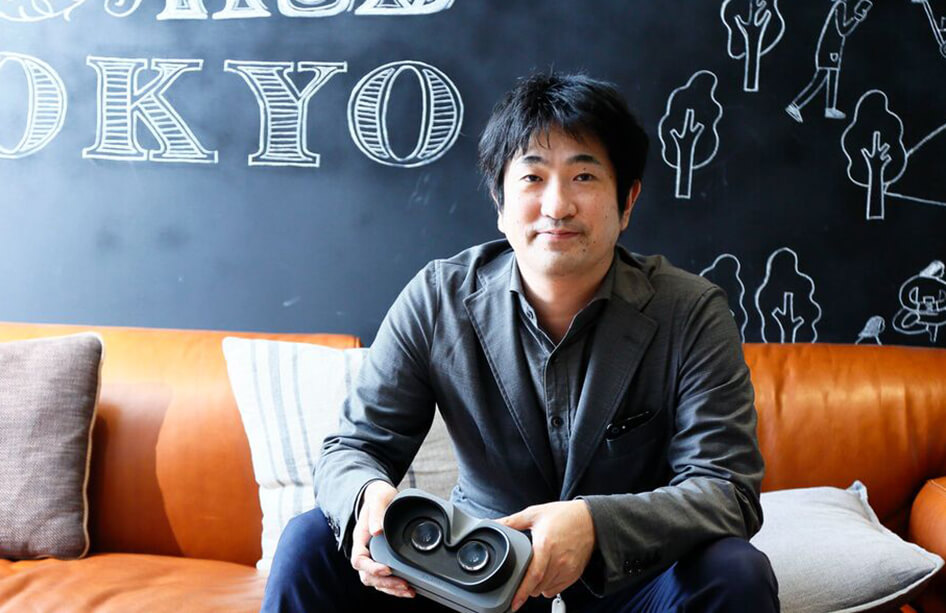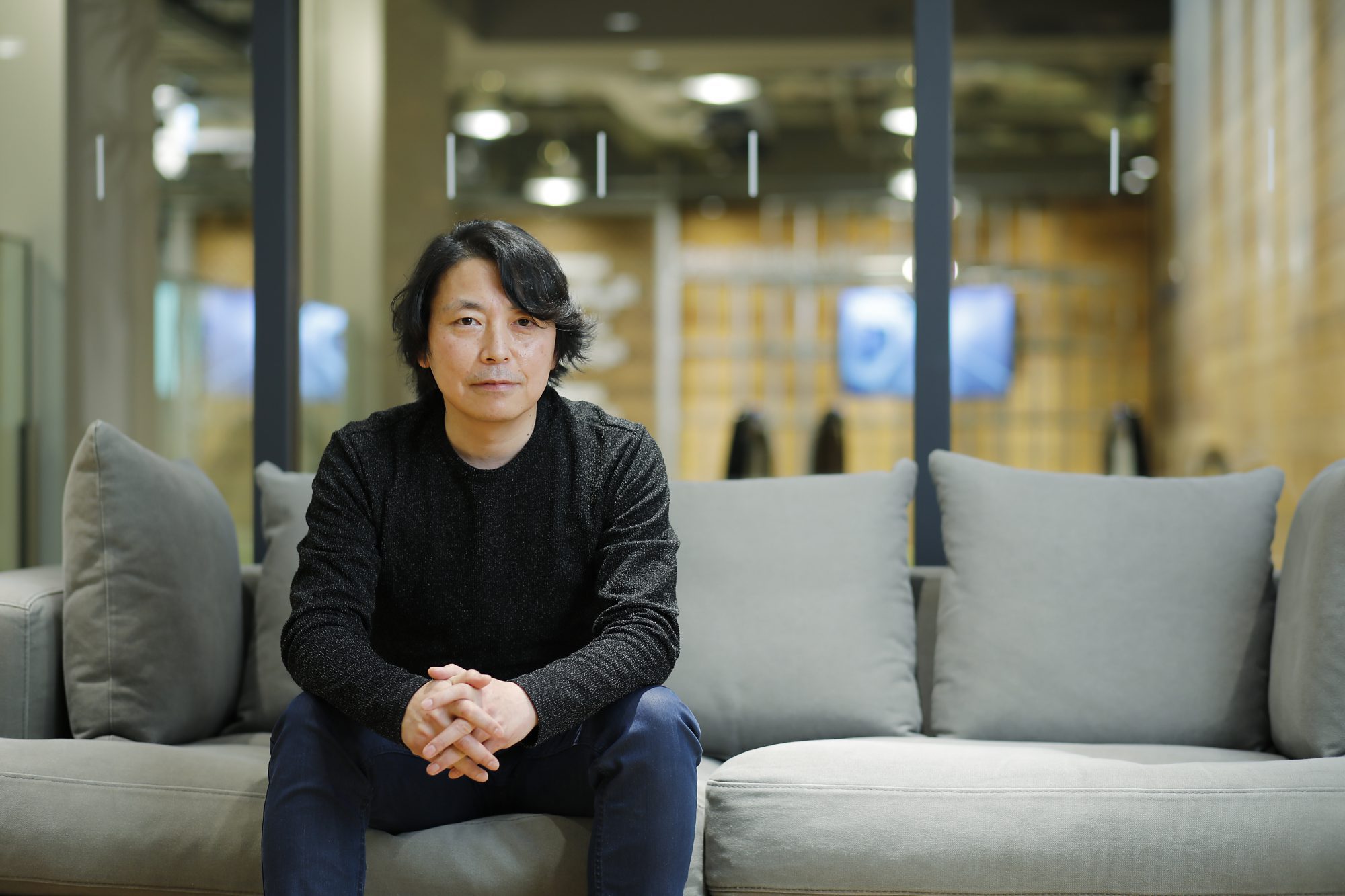Changes transcending the past 20 years” will occur from here on. Speeding up software development
JFrog Japan
Country ManagerKatsunori Tanaka
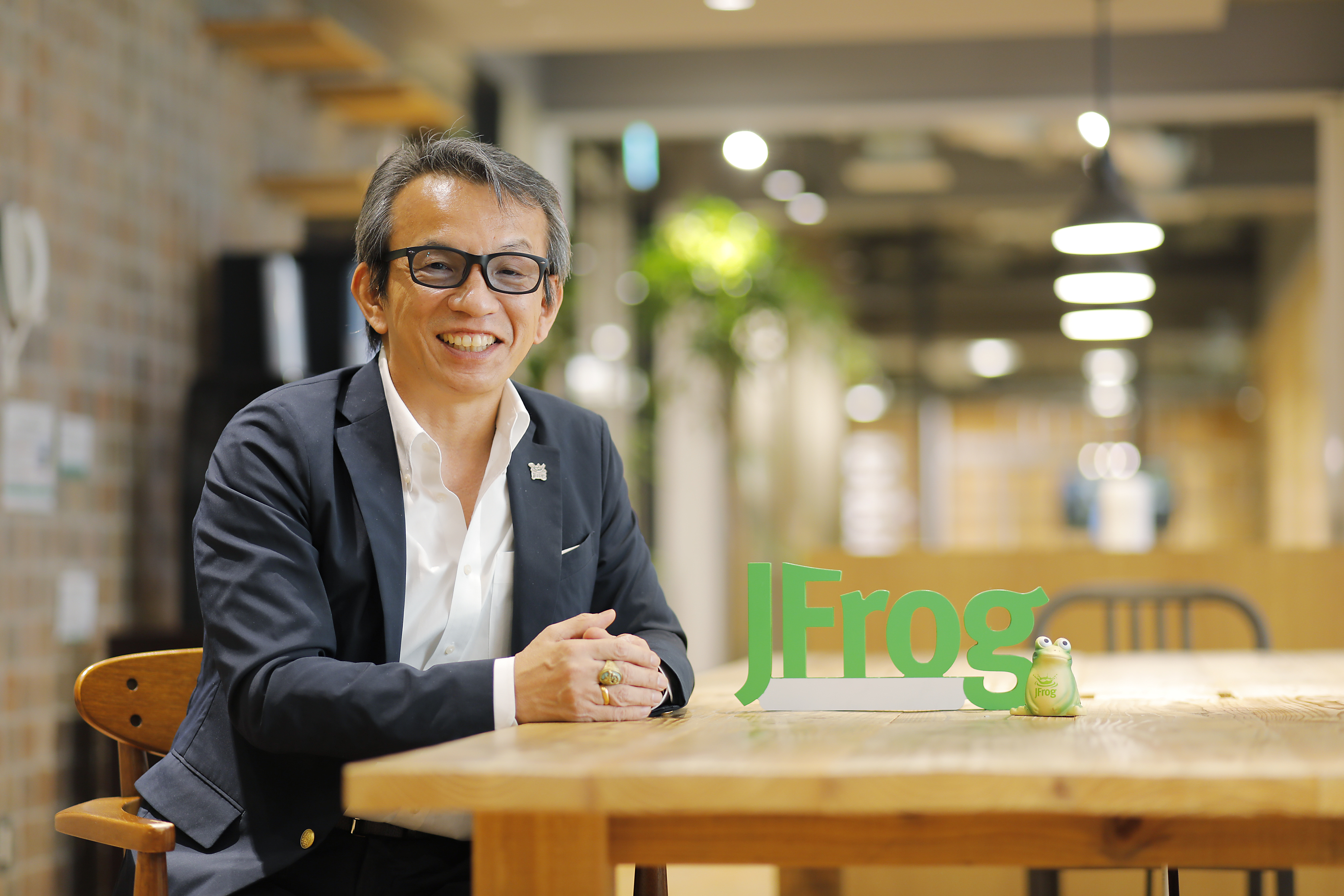
Interview: Toru Uesaka / Editing: Kanae Maruyama
What values do people in growth companies have? What do they look for in the places where they work and the people with whom they work? What do they value in order to improve their work performance? This time, we’ll be hearing from Katsunori Tanaka, Country Manager at JFrog (JFrog Japan), a developer platform listed on the Nasdaq in the United States and trusted by about 6,000 companies around the world.
INDEX
- An app indispensable for living. What is the company that makes the software used to make that software?
- The founder is a former “officer of the Israeli Air Force”
- Drones have been used in the military for about 20 years.
- I thought it was fireworks, but it was the sound of rockets
- The impact of being used by “75% of Fortune 100 companies”
- “Changes transcending the past 20 years” will occur in the next few years
- Sticking to the Israeli culture of “not being bound by short-term gains and losses”
An app indispensable for living. What is the company that makes the software used to make that software?
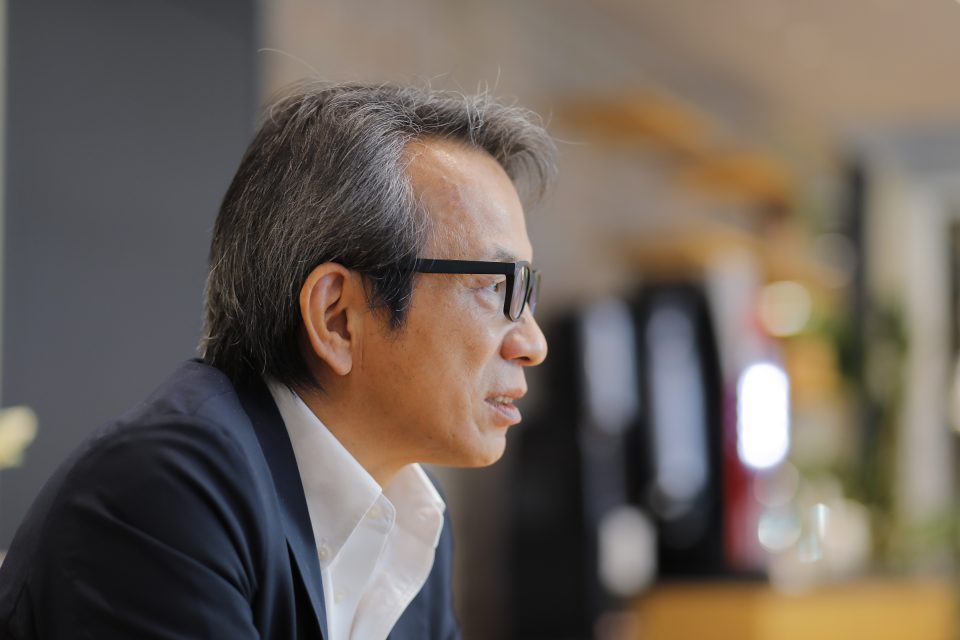
Founded in Israel in 2008. It is known as a unicorn company, with a sales growth rate of more than 50%. It was listed on the Nasdaq in the United States in September 2020. It supports DevOps technologies that allow developers to use the tools they are familiar with.
“‘DevOps’ is a neologism that combines ‘development’ with ‘operation.’ To put it simply, we’re a company that creates software development environments.”
The applications on smartphones provide an easy example for a regular person, as apps are now an indispensable part of our lives. This is actually the same for companies. Software development has become a vital part of any company. However, the development environments are still lagging behind those of the manufacturing industry.
“Factory automation has become the norm in the development facilities of the manufacturing industry. Robots are taking care of the work processes and performing many times more work than humans. Machines are handling what humans used to do, so that tasks that used to take one day can now be completed in an hour. But we haven’t been able to do this yet in the software world.”
This is why they created software to make software more efficiently. That is JFrog’s DevOps.
“We live in an age where everything—in finance, insurance, services, and driving—is being replaced by software. Software engineers are needed more than ever. In Japan, however, the population is decreasing, so that the number of developers is decreasing at the same time. It is said that there is already a shortage of 400,000 to 500,000 new engineers a year.”
If the demand for software grows, development opportunities will increase, and development resources will also be required. However, there is a shortage of makers in Japan. Not only that, but we will have to create things that are more complex than ever.
“In the manufacturing industry, you can’t just line up a lot of people on a factory line to make things anymore. You leave it to the machines, with the people staying in the control tower. It’s complicated, but we need to create that kind of situation.”
In addition, the way we do updates has changed. DevOps is also good for repeating small updates quickly. This is also the reason why advanced companies are deciding to introduce it one after another.
The founder is a former “officer of the Israeli Air Force”
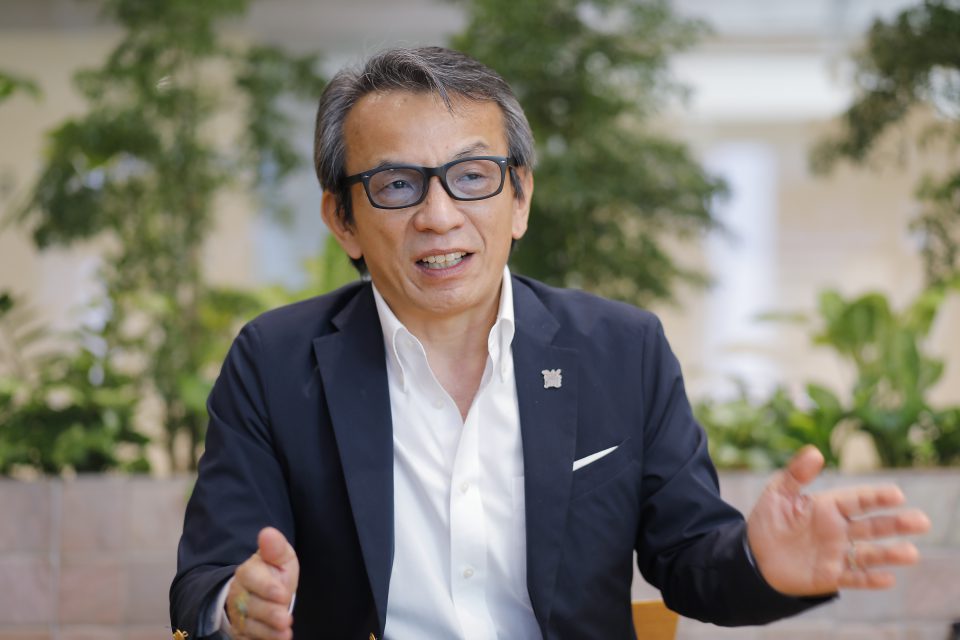
JFrog has consistently worked on DevOps. The founder was an officer who joined the Air Force straight from an Israeli university and spent 12 years there.
“In Israel, everyone joins the army at the age of 18. Men enter the army for three years. Women for two years. And the real elite course is to get out of the military academy and become a military officer. Moreover, even if you go to the private sector without becoming an officer, you can receive support in the form of venture capital from senior military personnel, so an ecosystem has been created.”
In the areas of IT and security, Israeli companies have been attracting a lot of attention in recent years because of their involvement with the military.
Drones have been used in the military for about 20 years.
“The military has been injecting people and money into new technologies. The military has been working on cutting-edge software technologies such as surveillance and tracking systems from early on. In fact, drones have been used in the military for about 20 years. They conduct surveillance with cameras and shoot down rockets autonomously. Drones are born from such technologies that originated in the military.”
Elite researchers remain in the army and continue development. Some of them graduate and go into the private sector, but their goal is to enrich the country. It is a transition from the military to the economy.
“Increasing the reputation of the country of Israel, raising tax revenues, and creating jobs are also of great value to Israel. I think it’s a very good system.”
I thought it was fireworks, but it was the sound of rockets
The founder of JFrog is one such person. Tanaka says that he visited Israel when he joined the company. Due to the frequent news about rocket hits, I imagined a rough landscape, but it was completely different.
“The city was beautiful and surprisingly peaceful. Couples were walking their dogs along the shore. The people are kind, and the food is delicious.”
However, at night, he heard distant sounds, like “boom, boom.”
“I asked if they had been shooting fireworks last night and was told no, those were rockets coming in. But almost all of them had apparently been shot down with Scud missiles. This surprised me.”
The impact of being used by “75% of Fortune 100 companies”
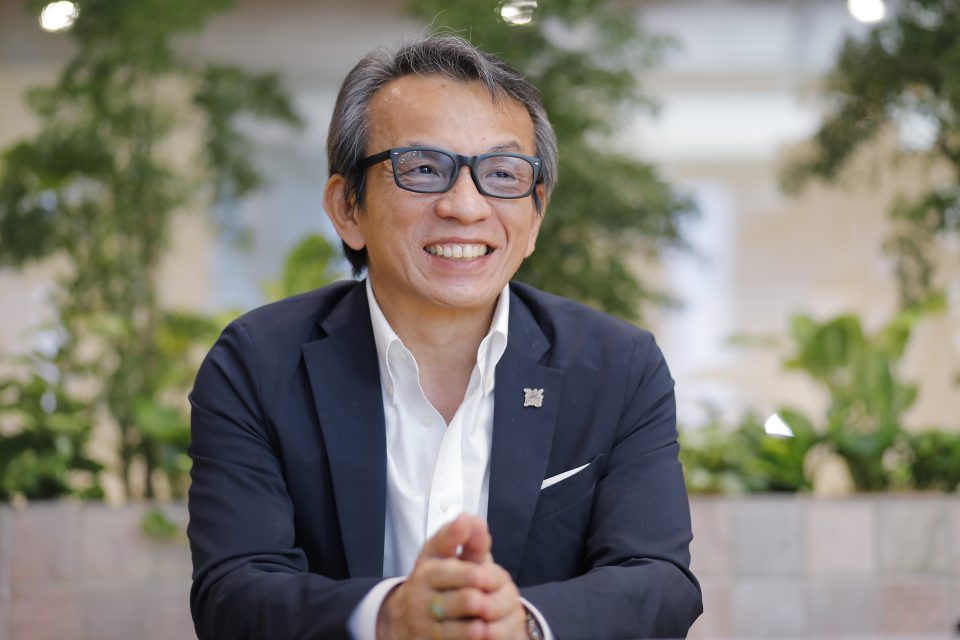
When JFrog was founded 13 years ago, software development was more cumbersome and time-consuming than it is now. The founder was accumulating experience in the military. Was there no way to make software-making easier?
Taking ideas created for their team, they have made products, commercialized them, and sold them up until the present day. The needs were great. Approximately 6,000 companies around the world have already adopted the system. Of the companies on the Fortune 100, 75% use it.
“It’s not just for IT companies. It’s for any industry or company that makes software in-house, including finance, retail, automotive, and telecommunications. We want to make it easier, make it faster. We needed the tools to do that.”
To put it simply, this is a business that provides a “workbench” for development. It is not that there are no competitors, but one key feature of JFrog is that the tools used on a daily basis can be used as they are. Moreover, both the cloud and the company’s own servers can be used.
“We can provide hybrid support, partly in the cloud, partly on their own servers. Only Jfrog can do that.”
The company came to Japan in 2018. The goal was to become a global company and be listed on the Nasdaq in the United States, so expanding to Japan was an indispensable strategy.
“Getting in on the markets in Asia, especially Japan, is a staple of globalization. I came to Japan in 2017 to inspect the situation, and we opened an office the following year.”
“Changes transcending the past 20 years” will occur in the next few years

Many Japanese companies develop their own software. However, especially when it comes to traditional major companies, there are many cases where an old system is continuously updated and used. Switching to a new system all at once is risky. However, old systems also come with risks, which also affects competitiveness.
“Western companies continue to invest in new companies to win. My impression is that this is starting to happen in Japan as well. Especially in the past year, things have been getting going all at once.”
Toyota Motor Corporation, Rakuten, and other famous Japanese companies are joining the list of customers.
“Of course, some companies have been taking advanced initiatives from early on, but the environment surrounding software is evolving rapidly. I think people are starting to take notice.”
What has happened in the last 20 years? Feature phones have been replaced by smartphones, and the amount of software being made has exploded. However, Tanaka says that changes transcending those of the past 20 years will accelerate further from here on in.
“I think it’s going to be even more amazing. Maybe this will be when you’re going to develop your own limousine. Wherever you go, if you leave the house, it will take you where you want to go. Smartphones may not be in their current form. Glasses become devices. The TV becomes a device. You can wear a small computer and use a variety of devices to retrieve information and give instructions. That’s the kind of world that may be.
You don’t need cash to shop. In fact, there isn’t even a need for a cash register. Experiments have already been conducted in Japan, so it’s not a fantasy at all. That will also change the way we think about cash. Is it really necessary to have bank branches? Is it okay to use seals as a tool to indicate approval? Is it okay to think of business hours as working hours?
In such a world, what do we need to do? As things that were not known are gradually becoming clearer, I think that many companies are realizing that they need to fundamentally change themselves.”
Whenever someone new adopts JFrog, they are interviewed by the press. Inquiries come in from companies that see the interviews. Another adoption is decided, it becomes news, and inquiries come again. Such a cycle is being created.
Sticking to the Israeli culture of “not being bound by short-term gains and losses”
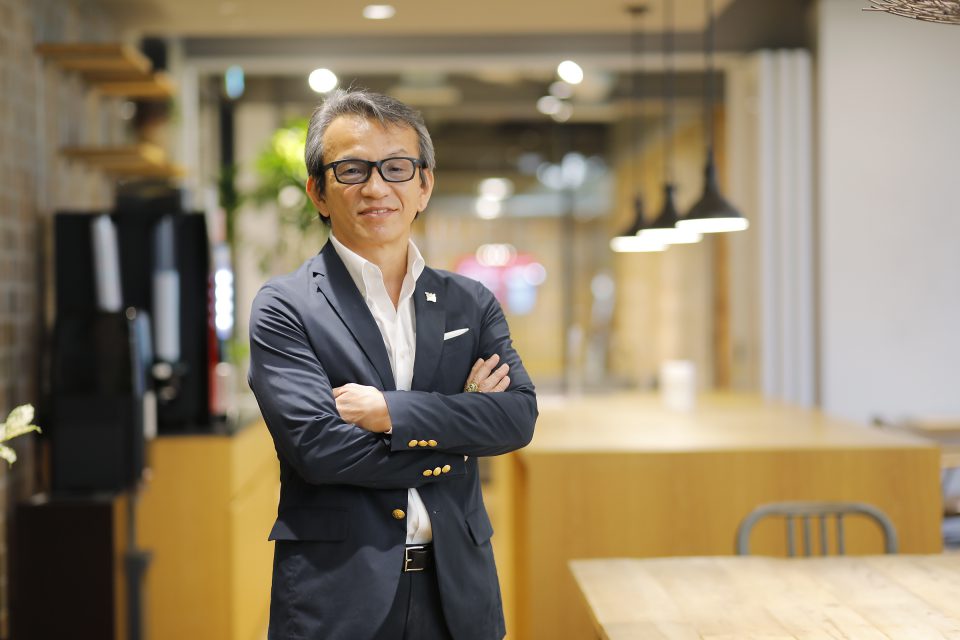
Tanaka joined the company to become “the first Japan employee”
There are supposed to be about 700 members around the world, but the Japanese company only has six members. They are currently recruiting a seventh employee. The move to Global Business Hub Tokyo (GBHT) was already decided when he joined.
“The staff at the Israeli head office came to Japan to make a decision. When it comes to IT, people think of Roppongi and Shibuya, but they deliberately chose Otemachi. I think it’s because they understood the value of this place, where many major Japanese companies have their headquarters.”
Thanks to that, we could often welcome customers at the office before the COVID-19 pandemic.
“There are a lot of conference rooms inside the facilities. They can be used for video conferencing too. There is also a large space that can be rented for meetups and seminars.”
He says that, when people ask where their office is and he replies “Otemachi,” it gives a good impression. What Tanaka likes more than anything else is the calm atmosphere.
“Places where startups gather have a campus-like atmosphere. But the thing is I’m 60 this year. I just don’t feel at home in that kind of atmosphere. In that respect, the design here is calm and has an adult atmosphere. What’s more, it’s spacious and doesn’t feel crammed. The service is as polite as a hotel. It’s very comfortable.”
In the future, he hopes to steadily increase trust in JFrog.
“We have a good culture as an Israeli company. We do the best we can, not focusing just on short-term gains and losses. We will grow together with our customers. We will do what is expected of us with honest frankness. I hope we can be a company that makes people say, ‘Who would have thought a company as earnest as this one could exist?’”
Israelis have a keen interest in Japan, including Japanese anime. And now, an advanced company from Israel is about to take the world of Japanese software by storm.
Photography: Tomoyasu Osakabe

